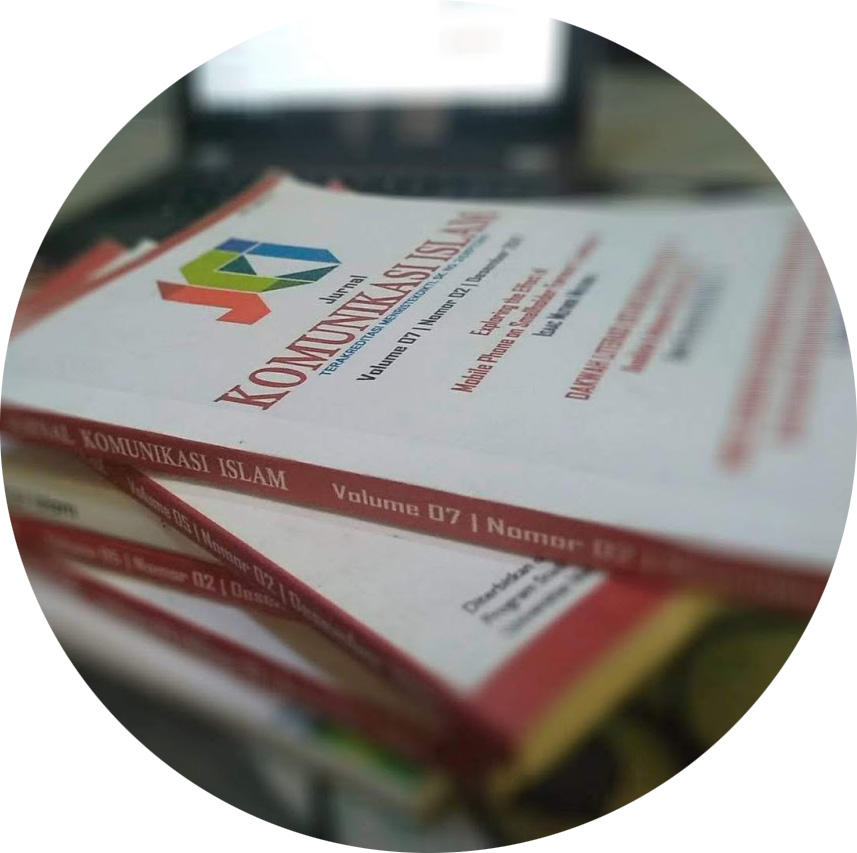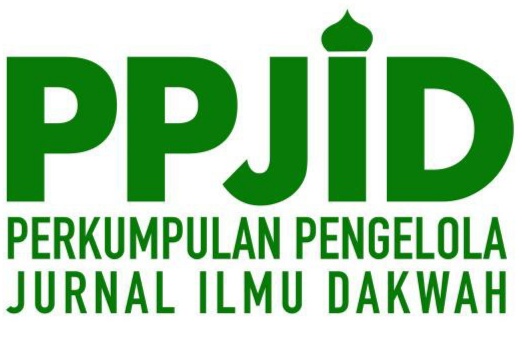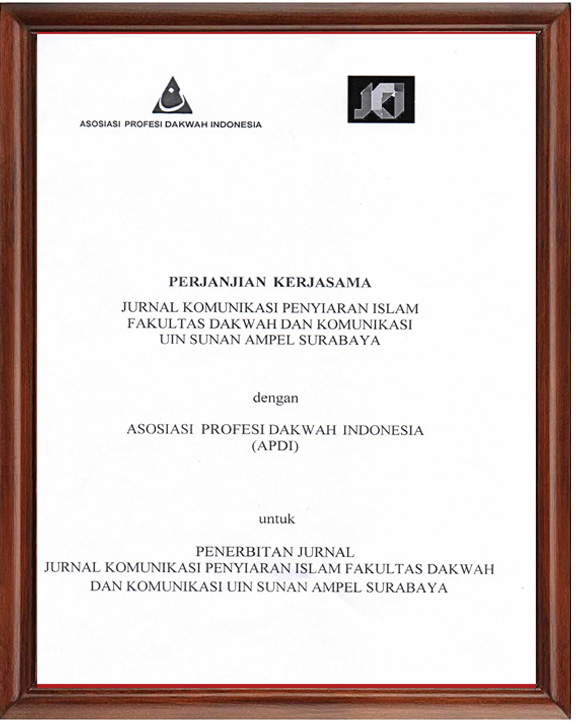Campus Radio Against Conflict: The Case Study in The University of Peshawar
DOI:
https://doi.org/10.15642/jki.2014.4.2.177-197Abstract
This study deals with the role of Campus Radio (CR) of Peshawar University in Pakistan both to on campus community and off campus community related to the cases following the 9/11 such as terror and incident toward the cause of the ousted Afghan Taliban militant. The study uses qualitative research method to provide relevant information based on the actual participation, observations, and direct interviews of the researcher. Pashto language programs overcome the rupture caused by terrorism through suturing the past to the present. This “linking strategy” provides cathartic opening for the off-campus community, helping them to question temporal realities-radicalism and terrorism.
Keywords: Campus radio, Peshawar university, conflict, qualitative method
----------------------------------------------------------------------
Studi ini membahas peran Radio Kampus, Universitas Peshawar, Pakistan bagi komunitas di dalam dan komunitas di luar kampus terkait dengan insiden terguling–nya militan Afghanistan dan kasus-kasus teror setelah peris–tiwa serangan 9/11. Penelitian ini menggunakan metode kualitatif untuk memberikan informasi yang relevan berda–sarkan partisipasi langsung, pengamatan, dan wawancara. Hasil penelitian ini menyatakan bahwa program bahasa Pashto menyelesaikan problem yang disebabkan oleh tero–risme melalui menghubungkan masa lalu dengan masa kini, yang disebut dengan “linking strategy”. Strategi ini membe–rikan ruang katarsis bagi masyarakat luar kampus, serta membantu mereka untuk mengkritisi realitas radikalisme dan terorisme yang ada.
Kata Kunci: Radio kampus, Universitas Peshawar, konflik, metode kualitatif
Downloads
References
Breed, Warren. 1955, Social Control in the Newsroom: A Functional Analysis. University of North Carolina Press
Briggs, Charles. 1986, Learning How to Ask: A Sociolinguistic Appraisal of the Role of the Interview in Social Science Research. Cambridge University Press, Cambridge.
Brunsdon, Charlotte and David Morley.1978, Everyday Television: Nationwide. London: BFI.
Carter, Cathleen, and Kris Kodrich. 2013, ‘Challenges and Dangers of Reporting in a Tumultuous Border Region: How Journalists at the El Paso Times Deal with the Violence in Neighboring Ciudad Juarez’, Journalism & Mass Communication Quarterly, 90 (2): p. 331-346.
Castells-Talens, Antoni. 2010, ‘When our Media Belong to the State: Policy and Negotiation in Indigenous-Language Radio in Mexico’ In Rodriguez, C., Kidd and L. Stein. (Eds), Making our Media: Global Initiatives Towards a Democratic Public Sphere. Hampton Press: Cresskill, NJ, 1:249-270.
Couldry and Curran. 2003, Contesting Media Power: Alternative Media in a Networked World. Rowman & Littlefield Publishers: New York, NY.
Curran, James. 2003, Global Journalism: A Case Study of the Internet. In Couldry and Curran (Eds.), Contesting Media Power: Alternative Media in a Networked World (227-241). Rowman & Littlefield Publishers: New York, NY.
Daily Times. 2008, Police Looking for Would-be-Suicide Bomber. Accese on 26 November 2010 from http://archives.dailytimes.com.pk/national/19-Nov-2008/police-looking-for-would-be-suicide-bomber
Denzin, N. K. & Lincoln, Y. S. 2005 Introduction: The Discipline and Practice of Qualitative Research, in: N. K. Denzin & Y. S. Lincoln (Eds) Handbook of Qualitative Research (3rd edn) (Thousand Oaks, CA, Sage Publications).
Gans, Herbert. 1979, Deciding What’s News: A Study of CBS Evening News, NBC Nightly News, Newsweek, and Time. Pantheon Books.
Khan, Javed Aziz. 2012, Pakistan: Taliban Losing Their ‘War on Music”. Music Freedom Report. Retrieved on March 3, 2102 from http://musicfreedomday.org/wp-content/uploads/2012/02/MusicFreedomReport_Pakistan.pdf
Lindlof, T.R., & Taylor, B.C. 2011, Qualitative communication research methods (3rd ed.) Thousand Oaks, CA: Sage.Ling, Sharon. 2003, The Alternative Media in Malaysia: Their Potential and Limitations. In Couldry and Curran (Eds.), Contesting Media Power: Alternative Media in a Networked World (p, 289-301). Rowman & Littlefield Publishers: New York, NY.
Pea, R. D. 1994. ‘Seeing What We Build Together: Distributed Multimedia Learning Environments for Transformative Communications’. The Journal of the Learning Sciences, 3(3), 285– 299.
Rodriguez, Clemencia. 2011, Citizen Media Against Armed Conflict: Disrupting Violence in Colombia. University of Minnesota Press: Minneapolis, London.
Shah, Rehmat. 2004, Tappa or Landay Poetry. Khyber.Org. Retrieved on March 28 from: http://www.khyber.org/poetry/a/Tappa_or_Landay_Poetry.shtml
Terhi Rantanen and Elena Vartanova. 2003, ‘Empire and Communications: Centrifugal and Centripetal Media in Contemporary Russia.’ In Couldry and Curran (Eds.), Contesting Media Power: Alternative Media in a Networked World (p, 147-160). Rowman & Littlefield Publishers: New York, NY.
Yusuf, Moeed. 2008, Prospects of Youth Radicalization in Pakistan: Implications for U.S. Policy. Brookings Project on U.S. Relations With the Islamic World, Issue 14 of Analysis Paper. Retrieved from: http://www.brookings.edu/~/media/research/files/papers/2008/10/pakistan%20yusuf/10_pakistan_yusuf.pdf
Downloads
Published
How to Cite
Issue
Section
License
Copyright (c) 2014 Syed Irfan Ashraf

This work is licensed under a Creative Commons Attribution-NonCommercial-ShareAlike 4.0 International License.













